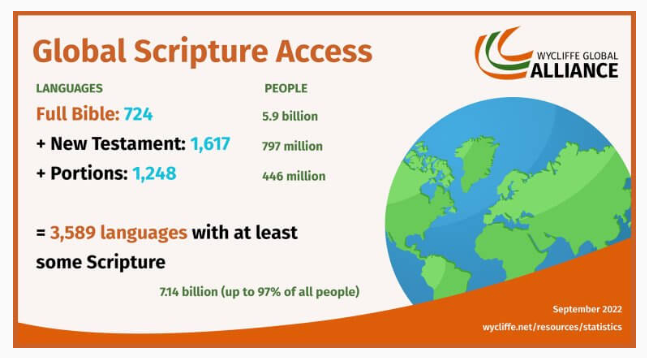One thing all believers in Jesus Christ have in common is this: someone told them. We believed the Good News message because someone else who heard it intentionally made it accessible to us; so that we could see for ourselves who God is and what He has done for us.
The Ma people of Papua New Guinea have heard the Good News about Jesus. The people of the church there want to share the gospel with the Jerung people. The Bible does not exist in the Jerung language. The Ma people need a Christian who is willing to be trained and sent to learn the Jerung language and translate the Bible into that language. Then the Ma people will be able to teach the “all things” that Jesus commanded His disciples to teach.
The Batsimba people have asked, “When is our turn to hear this message? We have no one to tell us.” No one has yet made the message accessible to them.
Seven came from the Hewa tribe. “My name is Seven. I have seven sons. I hiked for seven days to get here. I have been coming for seven years. Three of my sons are no more. When will you send a missionary?” An aerial survey revealed the location of some of the Hewa villages and coordinates for a team to visit by helicopter. There were no missionaries available. A year later a team of four missionaries began planning to live among the Hewa people. Today there are Hewa churches led by Hewa elders. And there are dialects of the Hewa language that are so different that the people in those groups will need their own missionaries and Bible translators to teach them the “all things” that Jesus commanded. Hewa
Hewa East. To the east of where churches have been planted among the Hewa people is another group of people whose language dialect is so very different that a missionary team will be needed to learn their language and translate the Bible into that dialect. Will you pray for provision of some missionaries to do this?
Many language groups like these mentioned above still have no access at all to the Good News about Jesus. The Joshua Project calls them “Frontier People Groups”. https://joshuaproject.net/frontier
A key factor in sharing the Good News is having the message of the Bible available to be taught and heard. Who is God? What is He like? Where did we come from? What is sin? Faith? What gives God the right to judge us? Who is Jesus? Why did He come? What does the future hold? All of these ideas are central to a clear understanding of the message of the Bible. They are also very difficult to communicate unless the Bible is accessible to the audience and the teacher.
So, is the Bible accessible? According to Wycliffe stats, thirteen Bibles and New Testaments were completed in 2018. Here is the state of the world in Bible translation. https://www.wycliffe.net/resources/statistics/
How many languages are there in the world? More than seven thousand. Not all of them need a translation because some are fluently bilingual and have reasonable access to the Bible in another language, however, many of them do need a translation. Faith comes by hearing God’s Word in a language you understand.
https://www.ethnologue.com/guides/how-many-languages
It’s not about the numbers but about there being SOME from every tongue, tribe, people, and nation (ethnos) being part of the church, the bride of Christ. https://joshuaproject.net/frontier/3
Global Frontiers Misssion – State of the World / The Task Remaining –
You will likely notice that numbers vary greatly in various presentations. This is due to differences in definitions, doctrine, sources, and objectives of the mission or presentation. Still, nearly every presentation shows great needs around the world and the desire for laborers to get involved and finish the task.
The IMB has some great information about people groups who need Christians to engage. https://peoplegroups.org/


